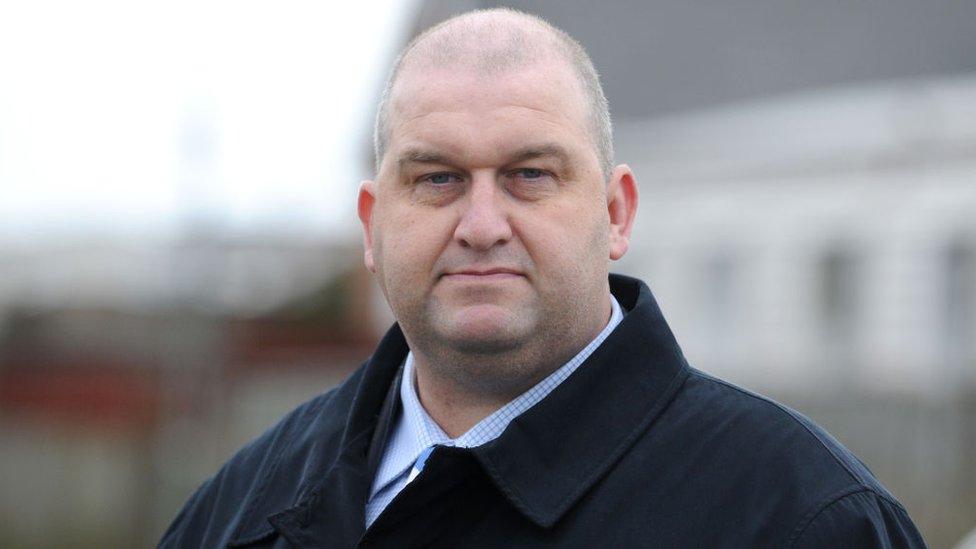Carl Sargeant inquest: Second anonymous letter claim
- Published
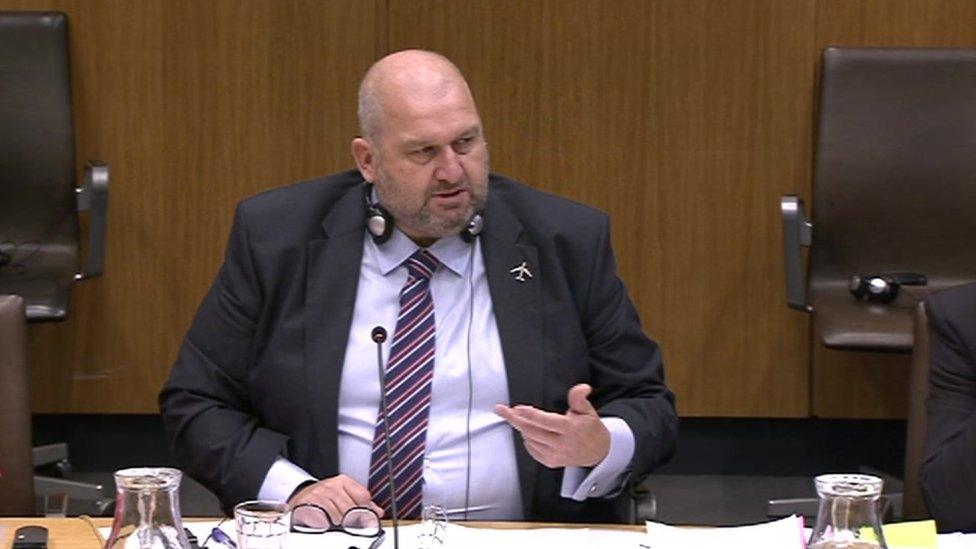
Carl Sargeant and his wife had discussed one letter in 2014, making claims about his behaviour around women
An inquest into the death of a minister who was found dead days after being sacked has heard claims the family had received a second anonymous letter making claims about his behaviour.
Carl Sargeant, 49, was found hanged at home in Connah's Quay, Flintshire, by his wife Bernadette on 7 November 2017.
Mr Sargeant was sacked as communities and children minister over claims of inappropriate behaviour towards women.
The inquest resumed in Ruthin after being adjourned in November.
On Tuesday, Mrs Sargeant had told the court she received one anonymous letter in 2014 making claims about her husband's behaviour around women, which she had discussed with him, and did not believe.
On Wednesday, Cathryn McGahey QC, representing former first minister Carwyn Jones, told coroner John Gittins there had been a second anonymous letter received in 2017 which talked of Mr Sargeant meeting a politician's daughter in a pub.
Ms McGahey suggested Mrs Sargeant may have forgotten things during her evidence and made an application for former Flintshire councillor Aaron Shotton to give evidence.
He had previously given a statement saying the family had received such a letter.
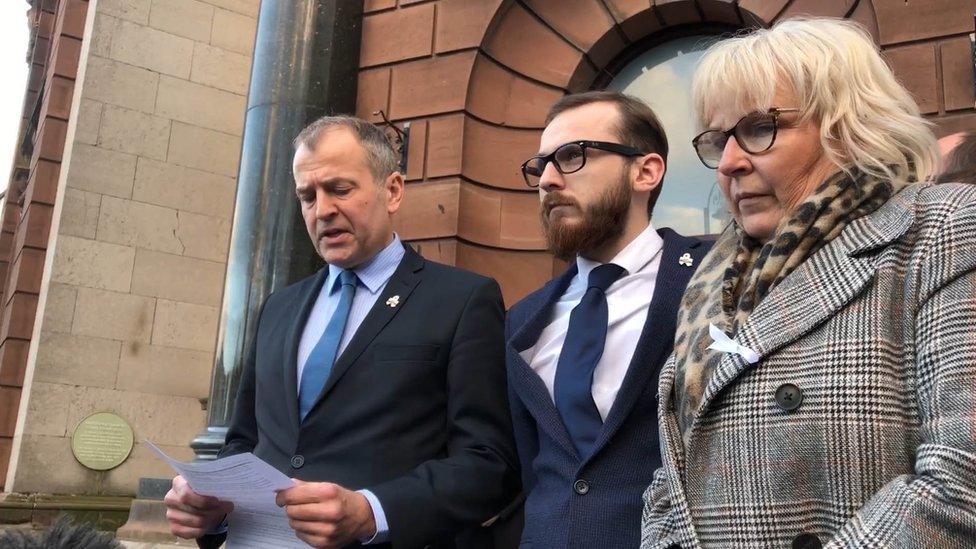
Jack Sargeant (middle) and Bernadette Sargeant at the inquest in November
Mr Shotton also said an alleged incident involving Mr Sargeant had occurred at the evening reception of his wedding, although he did not witness it.
Ms McGahey said the evidence may give insight into what may have been preying on Mr Sargeant's mind at the time of the death.
Leslie Thomas QC, for the Sargeant family, said the application was "misconceived" and an attempt to get around a previous court ruling denying an application to allow evidence from Mr Shotton and the former deputy leader of Flintshire council, Bernie Attridge.
He said the court had heard "that Carl Sargeant was seen in a public house with an adult who is a politician's member of family. So what?".
Mr Gittins dismissed the application, saying it was outside the scope of the inquest, calling it "opportunistic, and it does not advance my inquiry".
"I remind myself this is not a trial," he said, adding: "It's a coroner's inquiry, and my inquiry alone."
The coroner had earlier retired to consider an application by the media for text messages sent between Mr Shotton and Mr Attridge to be released.
He said it was perhaps "the hardest decision I have had to make in my role as a coroner so far".
The application argued the texts refer to allegations that the conduct of a Welsh Government minister may have led to imprisonment.
It also said a senior member of local government may have given a sworn statement which may have been contradicted by evidence contained in the messages.
Refusing the application, the coroner said it was not for him to judge what is "newsworthy," adding the "deceased and his family are entitled to respect and dignity".
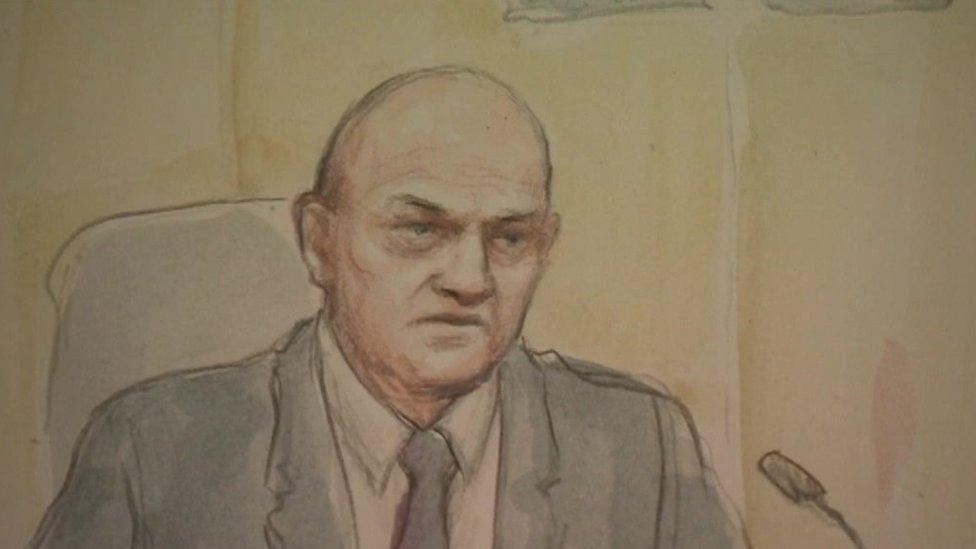
The inquest is being heard by coroner John Gittins
Earlier, the court had also heard read evidence from James Bailey, who worked on telephone lines for the Labour Party, who had received a call from Mr Sargeant at 09:01 on the morning he died asking to be put through to the head of disputes, Sam Matthews.
Mr Sargeant had previously spoken to Mr Matthews a few days earlier regarding a "serious complaint", Mr Bailey said.
On this occasion the call went through to Mr Matthews' mobile but he was on public transport and did not want to discuss the matter in public,
Mr Sargeant was told Mr Matthews would call back later.
Evidence from Iain McNichol, general secretary of the Labour Party at the time, explained he first became aware of three complaints against Mr Sargeant on 2 November.
After Mr Sargeant was removed from his post on 3 November, he agreed it was "appropriate" Mr Sargeant be suspended from the party after receiving an email.
First Minister Mark Drakeford said, in a statement, changes had been made to the procedures surrounding cabinet reshuffles and all ministers would be reminded of support services available from the assembly.
On Wednesday afternoon, parties gave submissions to the coroner, expressing their preferences and guidance on the form of conclusion he is to deliver.
Coroners can issue reports at the end of an inquest in a bid to prevent future deaths, requesting action be taken.
Georgina Wolfe, for the Labour Party, asked the coroner to bear in mind "significant changes" had been made by the party following Mr Sargeant's death, including an online safeguarding hub, telephone line, and "full signposting" if someone was to be suspended.
Ms McGahey said there was no need for a prevention of future deaths report directed at the former first minister or the Welsh Government, arguing it was not Mr Sargeant's dismissal that sparked media interest, but the allegations against him.
She added that Mr Sargeant knew how to access mental health support - at which point Mrs Sargeant rose, whispered "disgusting," and left the court.
The hearing has been adjourned until Thursday.
- Published9 July 2019
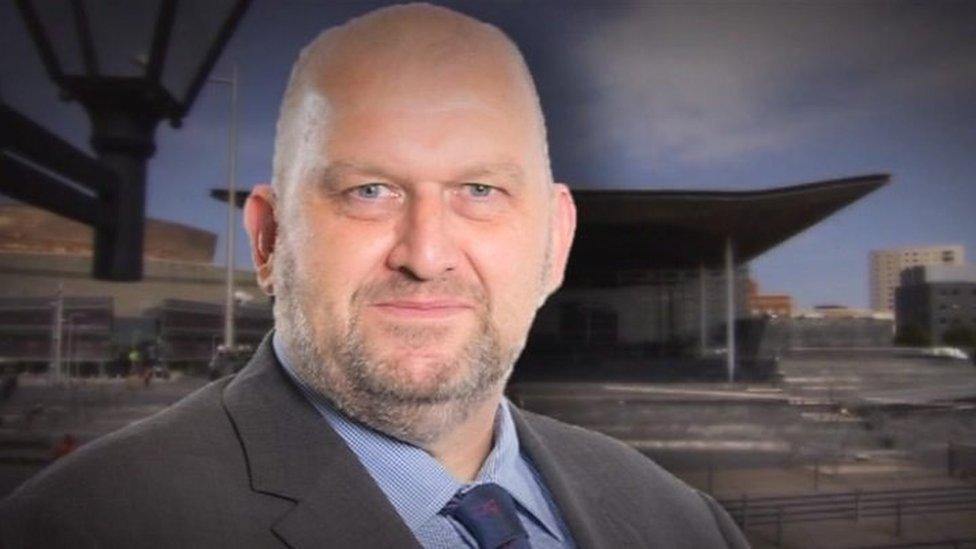
- Published8 July 2019
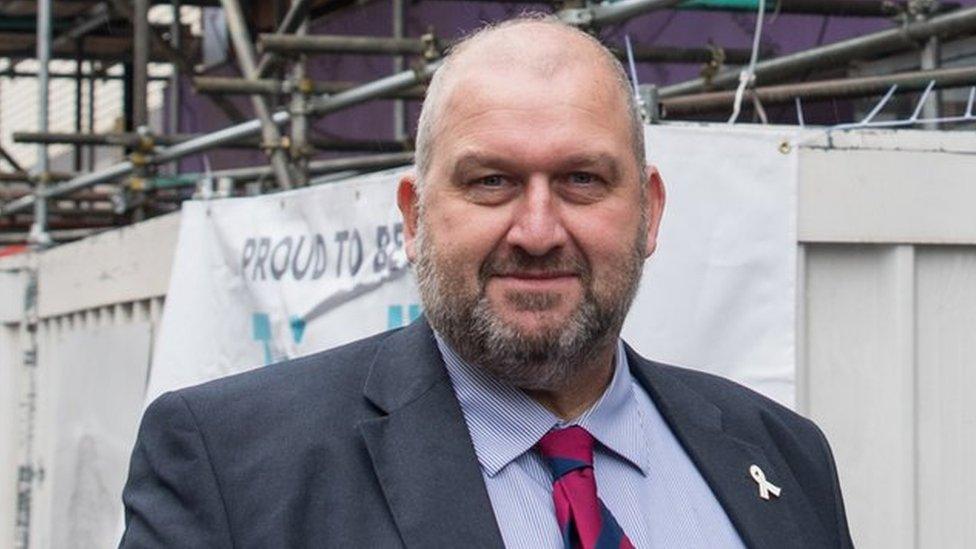
- Published9 May 2019

- Published30 November 2018
